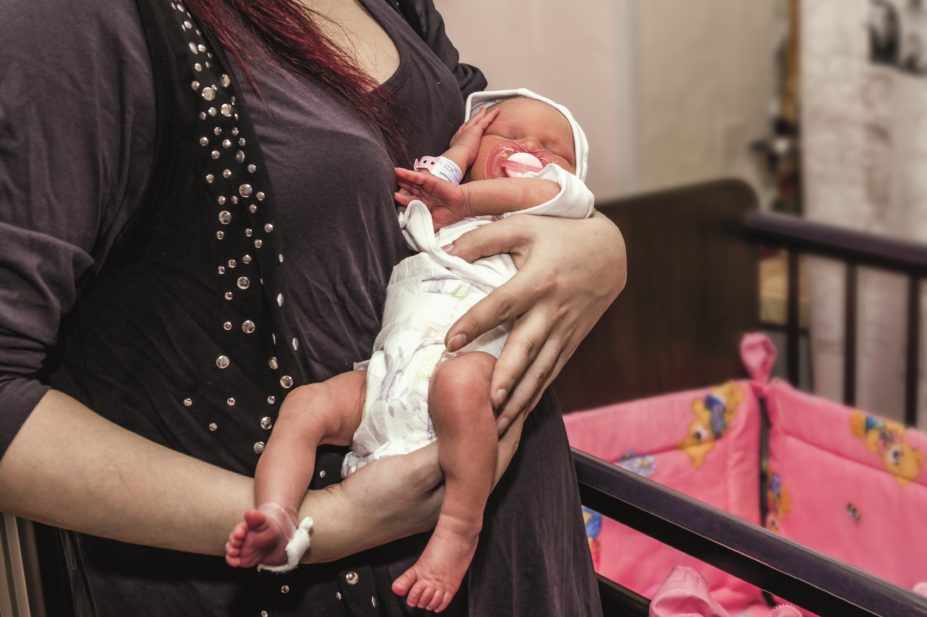
Shutterstock.com
The use of antidepressants by women during the second or third trimester of pregnancy is associated with an 87% increased risk of autism spectrum disorders (ASD) in their children, according to a study published in JAMA Pediatrics
[1]
on 14 December 2015.
The highest risk was seen in children who had been exposed to selective serotonin reuptake inhibitors (SSRIs) alone, and those exposed to more than one class of antidepressants.
“The effect was persistent even after taking into account maternal history of depression,” the researchers write, led by Anick Bérard, a professor at the faculty of pharmacy at the University of Montréal, Canada.
Although the causes of ASD remain unknown, both genetic and environmental factors are probably involved. Several risk factors, such as particular genetic variants, maternal disease, and maternal history of psychiatric disorders, have already been linked with autism.
The research team analysed data on all pregnancies and children in the province of Quebec between January 1998 and December 2009, selecting 145,456 singleton births to mothers who received all their medicines from the state’s public health insurance plan.
The study found that 4,724 of these infants had been exposed to antidepressants in utero. Looking at children who had been diagnosed with autism, the research found that there was a statistically significant association between exposure to SSRI antidepressants during the second and third trimester of pregnancy, but not the first (22 exposed infants; adjusted hazard ratio, 2.17; 95% confidence interval, 1.20–3.93).
The authors suggest several possible mechanisms to explain the link between ASDs and maternal use of antidepressants during pregnancy. SSRIs are known to cross the placenta and are found in amniotic fluid. Serotonin can modulate numerous prenatal and postnatal developmental processes, including cell division, neuronal migration, cell differentiation, and the development of synapses between neurons. Additionally, the capacity of the brain to synthesize serotonin is known to develop differently in children with ASD, and serotonin receptor binding is altered in the cerebral cortex of these patients.
Nevertheless, the study did not include children who had been born prematurely, which might have lowered the overall prevalence of ASD since the disorder has been linked to premature birth, suggests Bryan King, programme director of the Seattle Children’s Autism Center, Washington.
King also suggests looking only for ASD might miss an important part of the jigsaw. “Might an increase in diagnoses of ASD be mediated by an increase in the frequency of intellectual disability or some other neurodevelopmental risk factor?” he asks.
The researchers recognise that untreated depression is itself associated with many other complications. King says untreated depression might lead to prenatal stress, which in turn could increase the other risk for other negative psychiatric outcomes, such as anxiety, depression or hyperactivity.
“It is unlikely that there will be a straight link from such exposures that leads unwaveringly to ASD, and future studies should expand the neurodevelopmental outcomes examined,” King writes in an editorial[2]
accompanying the study.
There has long been a debate surrounding the use of antidepressants in pregnancy. Antidepressants have been associated with an increased risk of abortion, major congenital abnormalities, premature birth and low birth weight. In addition, the effect of antidepressants on pregnant women themselves is not clear — some studies conclude that the drugs have less effect on the symptoms of depression, while others warn that preventing severely depressed pregnant women from taking the drugs will send patients back into depression.
Max Davie, a community paediatrician and spokesperson for the Royal College of Paediatrics and Child Health, says prenatal depression affects around one in eight pregnant women, so research looking into the effects of antidepressants in pregnancy is vital if “we are to protect the health of children in future”.
Commenting on the study, Davie says there is no control group looking at the outcomes of women with comparably severe depression who are denied the use of antidepressants, along with the effect this has on developmental outcomes of their babies. “This sub group is crucial if we are to gain certainty around the risks associated with the use of antidepressants in pregnancy.”
“It is important that we offer the required support to parents as early as possible to ensure fewer mothers end up needing antidepressants in the first place and those that do, get the continued support they so vitally need.”
Health visitors are ideally placed to identify early signs of maternal mental health or deterioration, Davie says, “however, the government’s planned £200m public health cuts are a barrier to this and therefore must be stopped”.
References
[1] Boukhris T, Sheehy O, Mottron L et al. Antidepressant use during pregnancy and the risk of autism spectrum disorder in children. JAMA Pediatrics 2015. doi:10.1001/jamapediatrics.2015.3356
[2] King B. Assessing risk of autism spectrum disorder in children after antidepressant use during pregnancy. JAMA Pediatrics 2015. doi:10.1001/jamapediatrics.2015.3493


